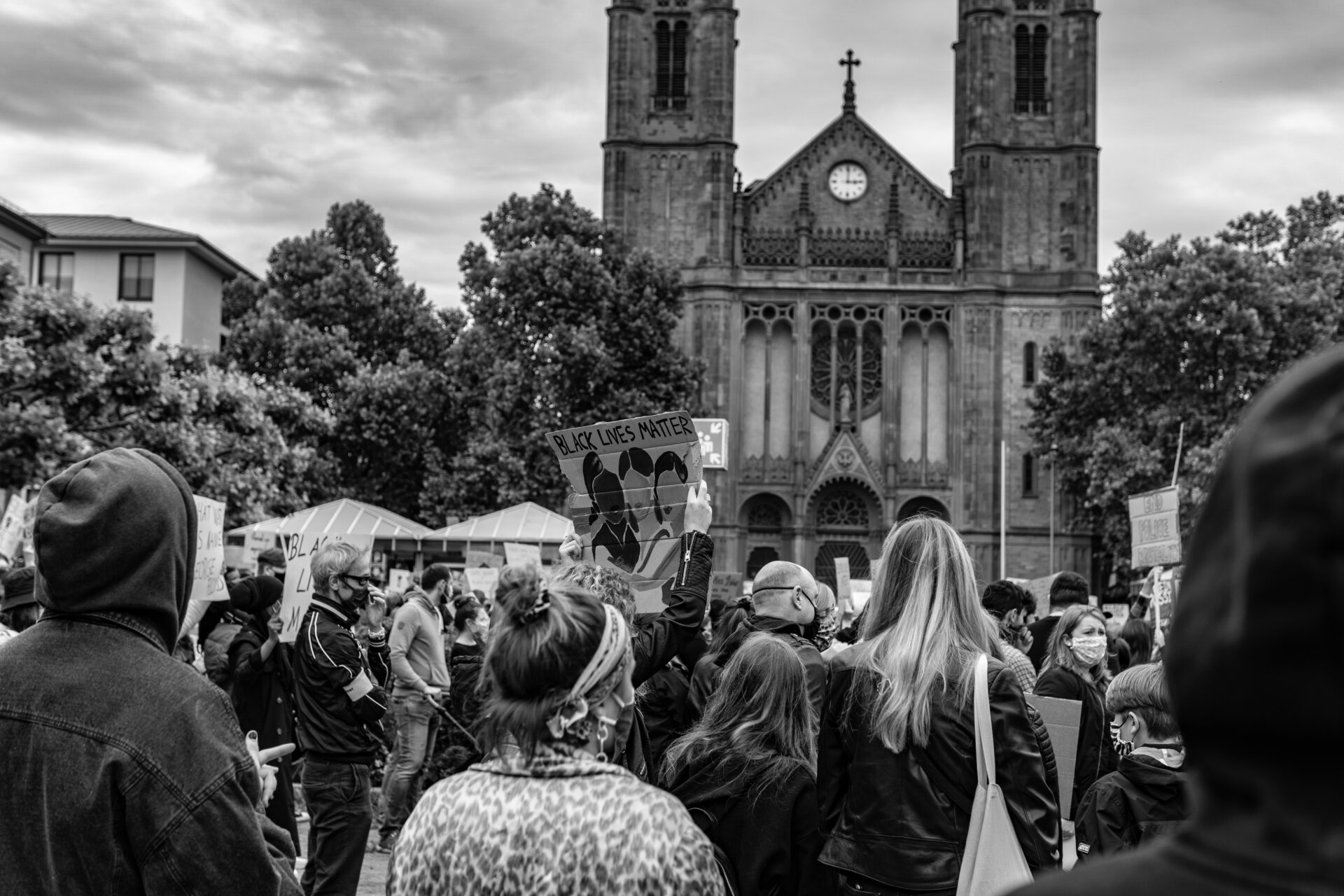
Photo by Folco Masi on Unsplash
A Thanksgiving hymn calling for an end to oppression
We gather together to ask the Lord’s blessing;
He chastens and hastens his will to make known;
The wicked oppressing now cease from distressing.
Sing praises to his name; he forgets not his own.
Beside us to guide us, our God with us joining,
Ordaining, maintaining his kingdom divine;
So from the beginning the fight we were winning;
Thou, Lord, wast at our side; all glory be thine!
We all do extol thee, thou leader triumphant,
And pray that thou still our defender wilt be.
Let thy congregation escape tribulation;
Thy name be ever praised! O Lord, make us free!
On the Sunday before Thanksgiving Day, the first hymn usually sung in churches (also at Thanksgiving Eve Services) is We Gather Together. It feels like it should be the epitome of a hymn of giving thanks, although it never actually says thank you. Rather, it asks the Lord’s blessing, prays for God to be our defender, to let us escape tribulation, and concludes by praising God.
The hymn began as a Netherlands folk song, written in 1626. The hymn’s author is unknown, although its translator, Theodore Baker (1851-1934) is the source of the hymn’s Thanksgiving connection in the United States. Baker, born in New York, authored the famous Biographical Dictionary of Music and Musicians. Baker translated the hymn from German for an anthem entitled “Prayer for Thanksgiving” published in 1894. Were it not for Theodore Baker, the song would have remained only a patriotic Dutch folk song.
Consider the story behind this hymn. Dr. C. Michael Hawn, University Distinguished Professor Emeritus of Church Music at the Perkins School of Theology, writes that “The Dutch, long a stronghold for the Reformed theology of John Calvin, were in a struggle against Spain for their political independence and against the Catholic Church for religious freedom. A 12-year truce was established in 1609, giving young Prince Frederick Henry a chance to mature into an able politician and soldier…Under the guidance of the Prince’s leadership, Spain’s efforts to regain supremacy on land and sea were finally overcome in 1648. There was indeed much for which to be thankful. Some of the political overtones in this hymn faithfully translated by Baker are apparent. Hymnologist Albert Bailey suggests that the phrase, ‘The wicked oppressing now cease from distressing,’ is an allusion to the persecution of the Catholic Church under the policies of Spain. Thousands had been massacred and hundreds of homes burned by the Spanish in 1576 during the siege of Antwerp. In stanza two, the writer states, ‘so from the beginning the fight we were winning,’ stressing that Protestants had always been assured of winning the cause. The truce of 1609 proved that the Lord ‘wast at our side.’”
“The wicked oppressing now cease from distressing” was written about the persecution by the Catholic Church under the policies of Spain. It could just have easily been penned about the United States’ oppression of its own Native Americans, the South’s early (and sometimes the nation’s continuing) oppression of Blacks, unenlightened Christians’ oppression of LGBTQ people, Russia’s oppression of Ukraine, or any number of other conflicts all over the world. Anyone who oppresses another, as an individual or as a nation, is wrong, evil, and an abomination in God’s sight. May all wicked oppressing cease from distressing. This is a folk song for any who are oppressed and look to God for help and for justice.
The hymn “We Gather Together,” often associated with Thanksgiving, is a song for any who are oppressed and look to God for help and for justice.
The first word of the title, the pronoun, is significant: we. Often faith becomes a matter of the first-person singular: I. The hymn reminds that when Christians gather together, we are the church, the body of Christ. Religion is not a solitary pursuit. While you can talk with God in private, worship God, praise God, and give yourself to God in private, it is in gathering that you become part of the people of God. The Lord’s prayer does not begin “My Father, who art in heaven,” but “Our Father.” A popular folksong of oppressed people is “We shall overcome,” not “I shall overcome.” The hymn, like the gospel, calls us out of our individual selves and beckons us as a group of believers to give ourselves to something greater than ourselves.
When we gather together to ask the Lord’s blessing, there must be the sense that there is room at God’s table for everyone. When a former leader of the United States wanted to build walls to keep others out – which goes against every fiber of what our nation has long stood for – some Christians responded, “Don’t build a higher wall, build a longer table.” Inclusiveness is Godlike. Exclusiveness is not. God’s way is the way of extravagant hospitality.
When we gather together, we become engaged in the work of God’s kingdom. It is a great task, although as a sign over a church door reminds us, “We believe that the power behind us is greater than the task ahead.” We gather together to teach and to practice the way of Jesus – to love God, to love neighbor, to forgive, and to serve.
We gather together. When people work together to accomplish a result, something else emerges from their gathering together: community. Community is a consequence of gathering together. It is a wonderful feeling to be part of a community to which you feel you belong, and where you are included as a valued member. In fact, it is such a wonderful feeling that people often mistake how to re-create that feeling, and so, they set out to “build community.” They then aim to accomplish something that cannot be aimed at, for community is never the goal but only the consequence of gathering together, working together, serving together, learning together, worshipping together, and building together. And so, when “We Gather Together to Ask the Lord’s Blessing,” we are propelled into something else, which is the work of God’s kingdom. As a consequence of that work for a greater purpose, we attain a sense of community. What results is a beloved community.
The King Center notes that “‘The Beloved Community’ is a term that was first coined in the early days of the 20th Century by the philosopher-theologian Josiah Royce, who founded the Fellowship of Reconciliation. However, it was Dr. Martin Luther King, Jr., also a member of the Fellowship of Reconciliation, who popularized the term and invested it with a deeper meaning which has captured the imagination of people of goodwill all over the world…Dr. King’s Beloved Community is a global vision, in which all people can share in the wealth of the earth. In the Beloved Community, poverty, hunger and homelessness will not be tolerated because international standards of human decency will not allow it. Racism and all forms of discrimination, bigotry and prejudice will be replaced by an all-inclusive spirit of sisterhood and brotherhood. In the Beloved Community, international disputes will be resolved by peaceful conflict-resolution and reconciliation of adversaries, instead of military power. Love and trust will triumph over fear and hatred. Peace with justice will prevail over war and military conflict.”
This Thanksgiving, as we gather to ask the Lord’s blessing, we sing this song and we remember especially people who are oppressed today. We pray for them. We see the news. And we, as people of God, name the sin: oppression. We sing and we pray Thy name be ever praised! O Lord, make us free! Make us all free. Amen.
Rev. John Zehring has served United Church of Christ congregations for 22 years as a pastor in Massachusetts, Rhode Island and Maine. He is the author of more than 30 books and e-books. His most recent book from Judson Press is “Get Your Church Ready to Grow: A Guide to Building Attendance and Participation.”
The views expressed are those of the author and not necessarily those of American Baptist Home Mission Societies.



